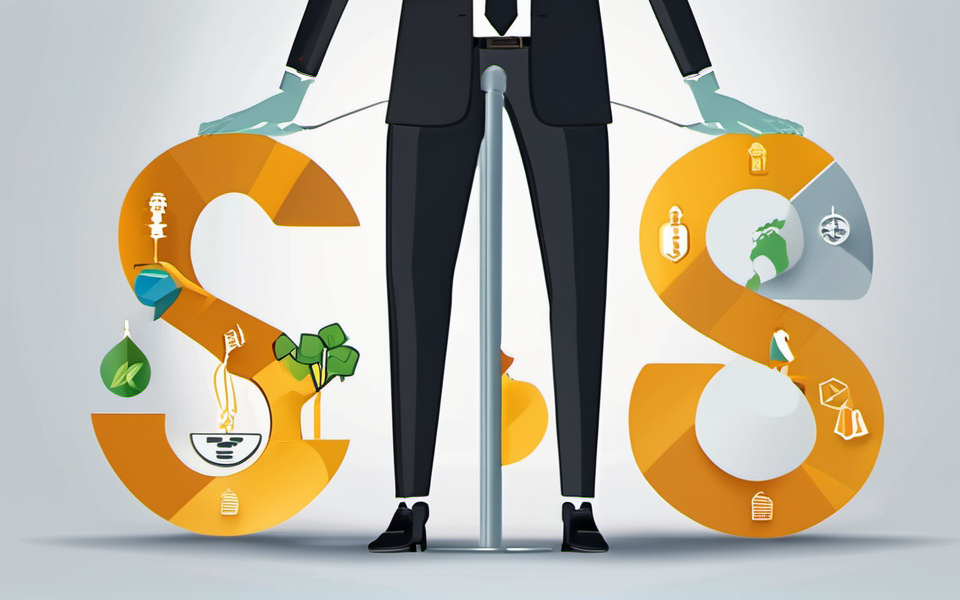The future is here, and it’s booming with disruptive technologies! But as businesses dive headfirst into a world of AI, blockchain, and green energy, a critical question arises: how do we ensure ethical growth without getting bogged down by stifling regulations? This delicate balancing act, bridging the gap between innovation and regulation, is the key to unlocking sustainable progress, both for businesses and society as a whole.
The Need for Agile Regulations in a Dynamic Landscape
Imagine this: You’re a tech startup developing groundbreaking AI-powered healthcare tools that promise to revolutionize diagnoses. Your product is potentially life-changing, but navigating a labyrinth of complex, outdated regulations feels like hitting a brick wall. Sound familiar? The traditional regulatory framework often struggles to keep pace with the rapid evolution of technology. Outdated regulations can stifle innovation and slow down the development and adoption of transformative technologies.
Balancing Regulation with a Forward-Thinking Approach
Instead of viewing regulation as an obstacle, consider it a strategic partner. Think of it as a safety net, ensuring responsible development and deployment of technologies that could have significant impact on society. We can achieve this by embracing agile regulation that:
- Fosters collaboration: Dialogue between regulators and innovators is crucial to fostering trust and ensuring that regulations are practical and effective.
- Embraces experimental approaches: “Sandbox” environments and pilot projects allow companies to test innovative technologies within a controlled framework, collecting valuable data for future regulation.
- Promotes transparency and accountability: Establishing clear ethical guidelines and reporting requirements for artificial intelligence development and use can build public trust and address concerns about bias and discrimination.
Harnessing Innovation for Sustainable Development
But let’s talk about the bigger picture: sustainability. While innovation can bring immense economic benefits, it’s essential to ensure it aligns with broader societal goals. Integrating green technologies into our existing infrastructure is vital to mitigating climate change, and regulatory frameworks should play a vital role in facilitating this transition.
Sustainable Development: The Perfect Fusion of Innovation and Regulation
Imagine a future where cities hum with renewable energy powered by smart grids, efficient transportation systems reduce emissions, and personalized health monitoring systems empower individuals to live healthier lives. This vision is within reach, but achieving it requires a collaborative effort between businesses, policymakers, and consumers:
- Invest in green infrastructure: Strong regulations and financial incentives can encourage investment in renewable energy sources, energy-efficient buildings, and sustainable transportation systems.
- Promote sustainable business practices: Regulations can hold businesses accountable for responsible waste management, efficient resource utilization, and transparency in their environmental footprint.
- Empower consumer choices: Providing consumers with clear information about products’ environmental impacts and incentivizing sustainable consumption through eco-labeling programs can drive market demand for environmentally friendly goods.
Navigating the Uncharted Territory
There’s no one-size-fits-all solution, and the future of innovation and regulation is constantly evolving. But by prioritizing collaboration, embracing agility, and staying true to our vision of a sustainable future, we can unlock the true potential of technology while protecting the values that matter most. The journey ahead may be uncertain, but by navigating this uncharted territory with wisdom and purpose, we can shape a brighter future for ourselves and generations to come.
Key Takeaways:
- Innovation and regulation must work hand-in-hand for sustainable development.
- Agile regulations are crucial for accommodating rapid technological advancements.
- Focus on sustainability goals: environmental protection, ethical AI development, and resource efficiency.
- Open communication between regulators and businesses is key for building trust and creating effective policies.




